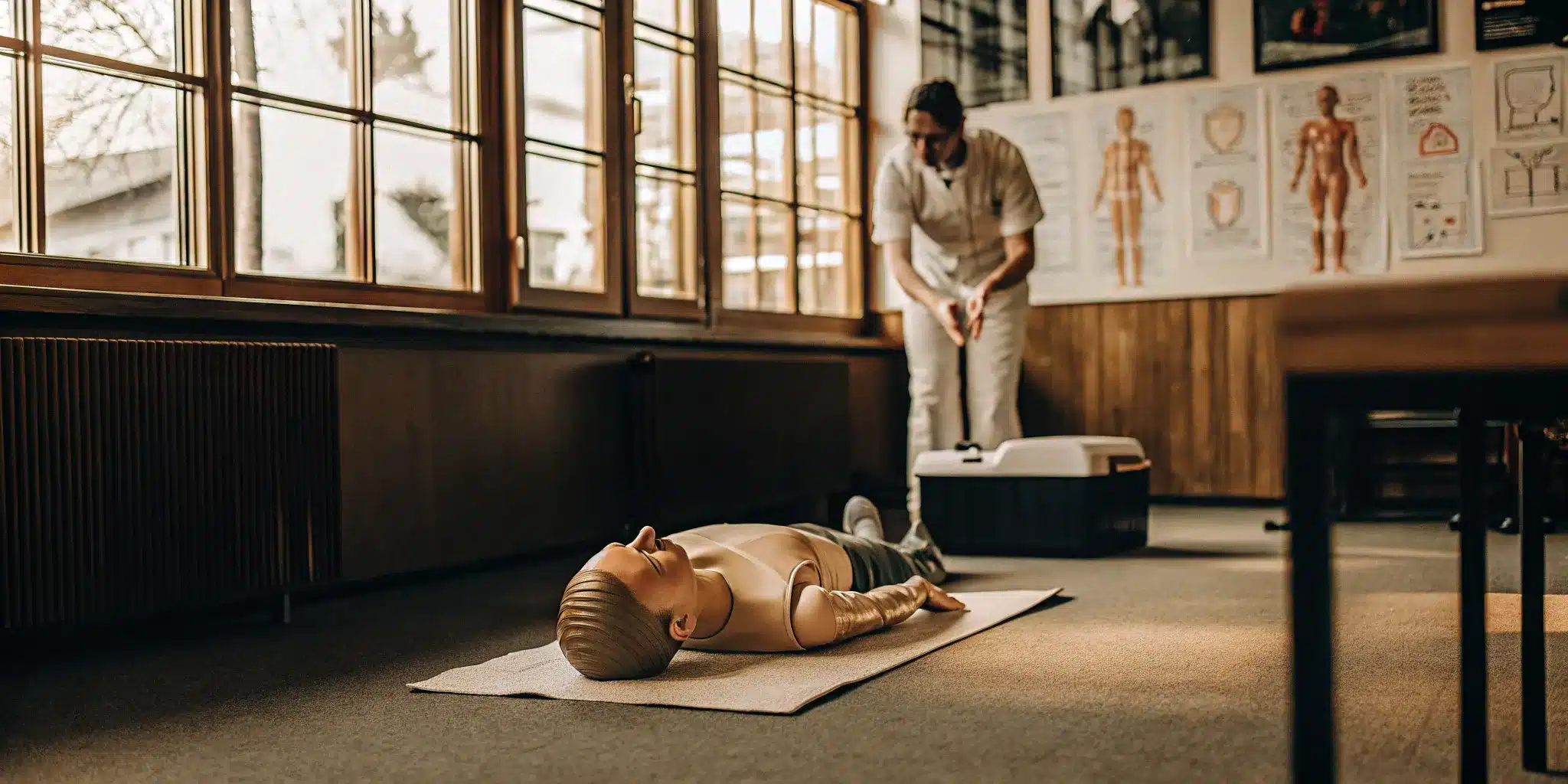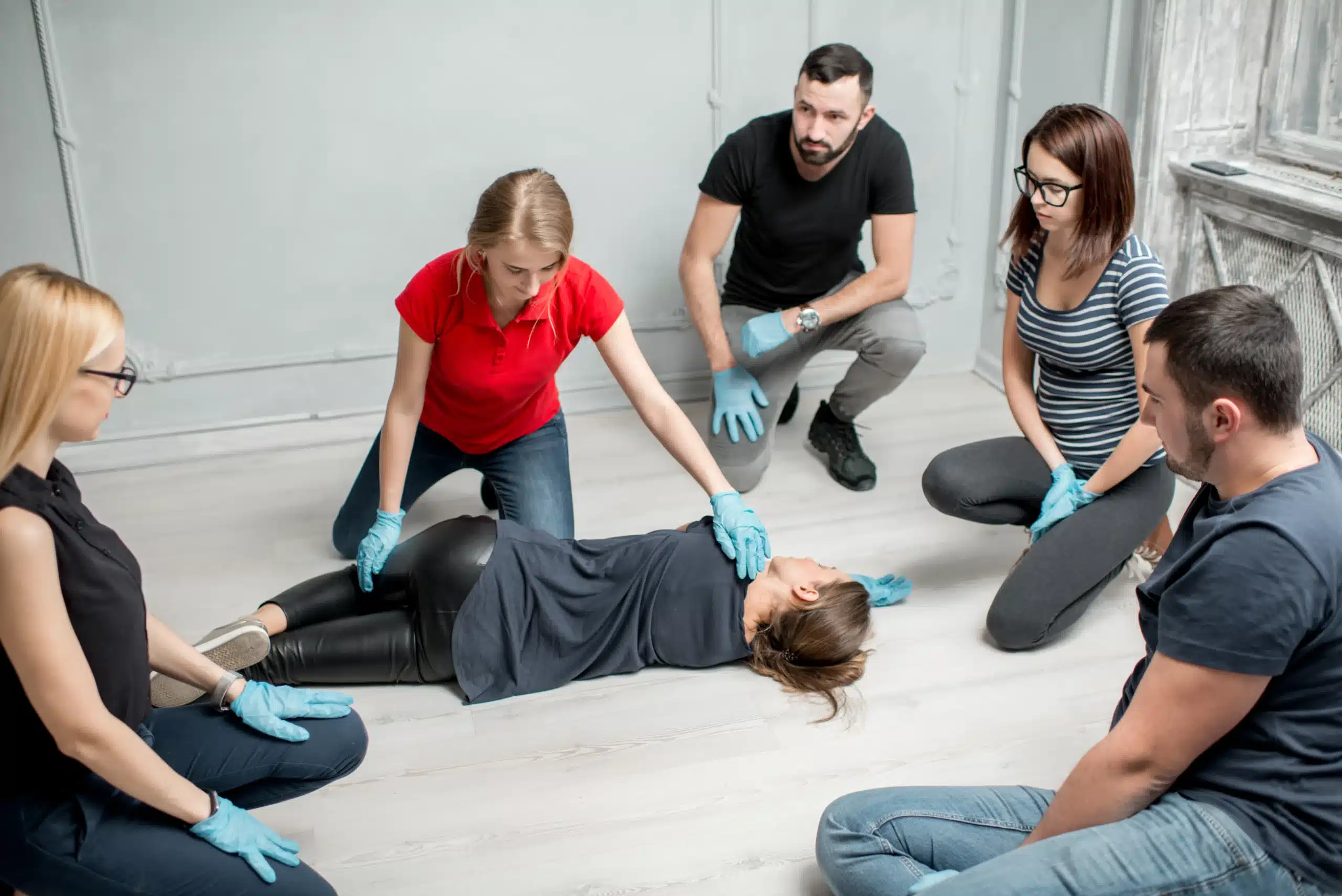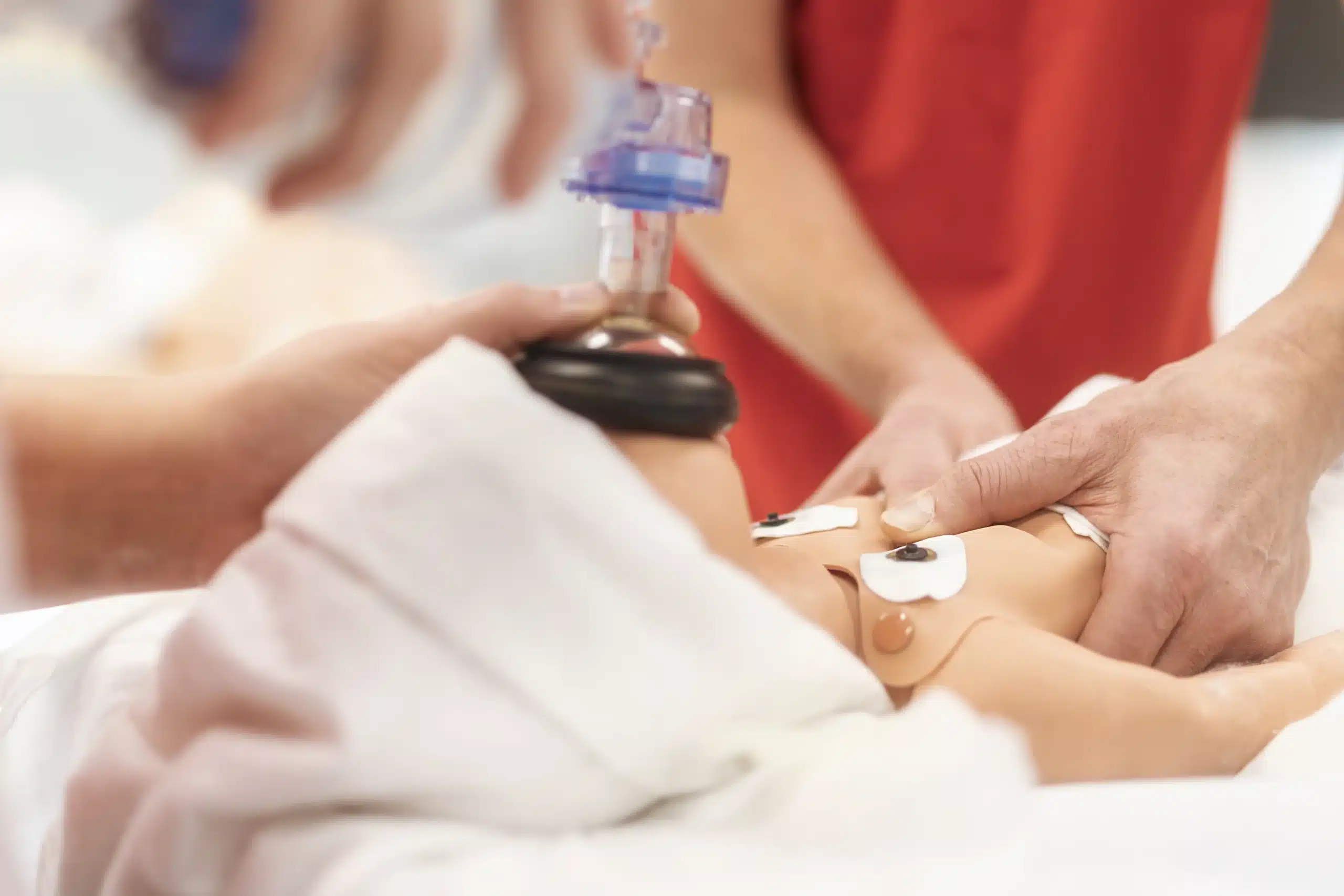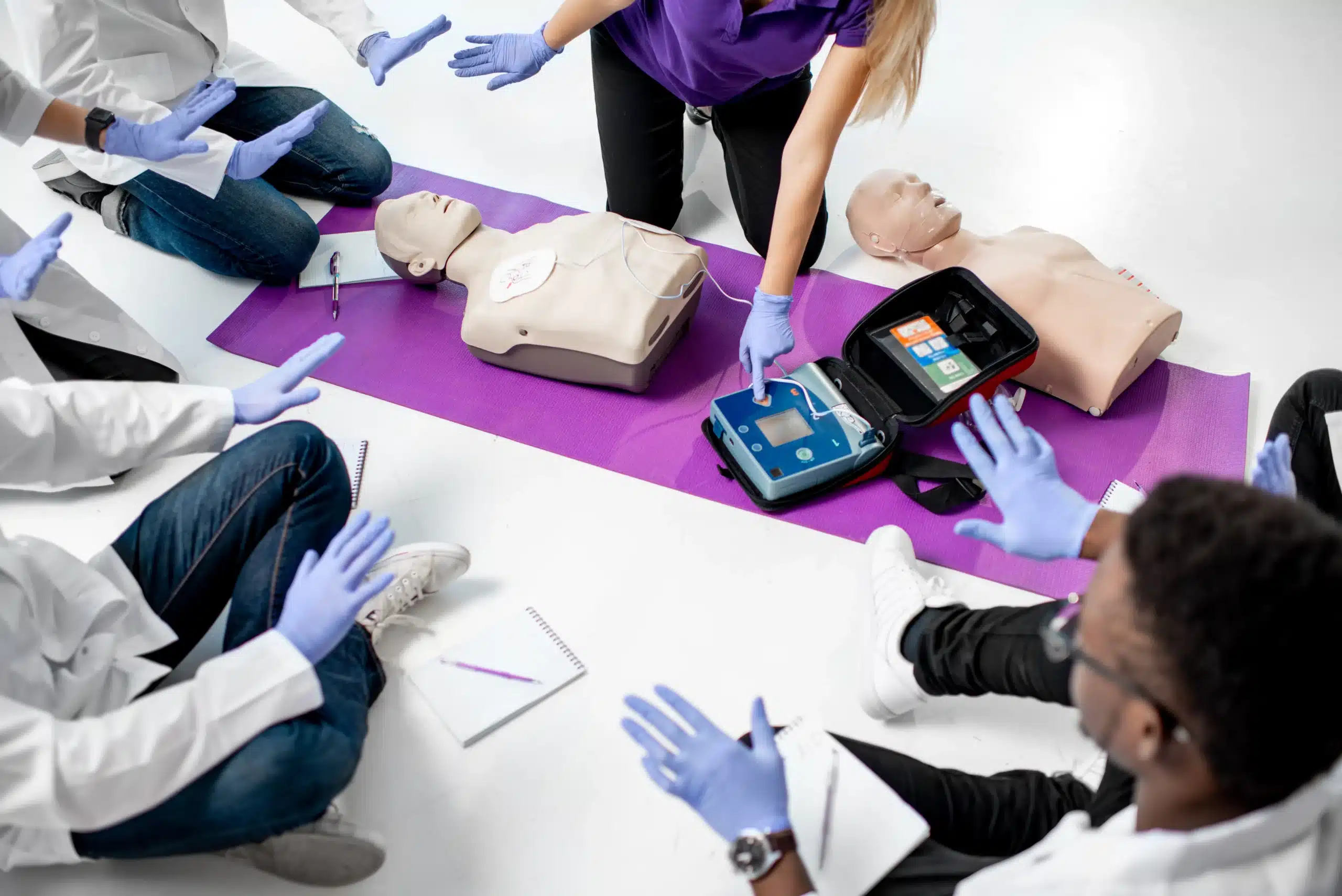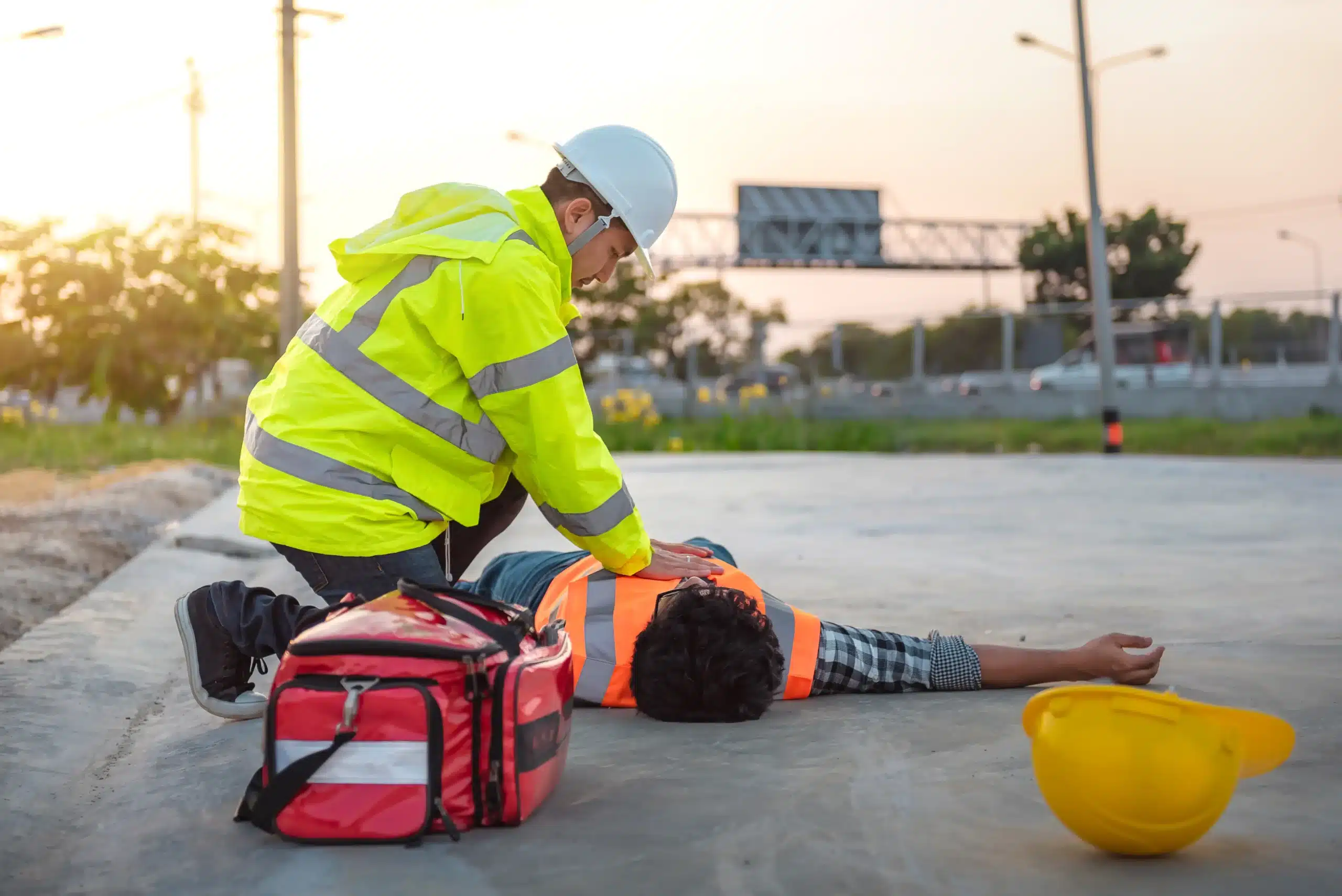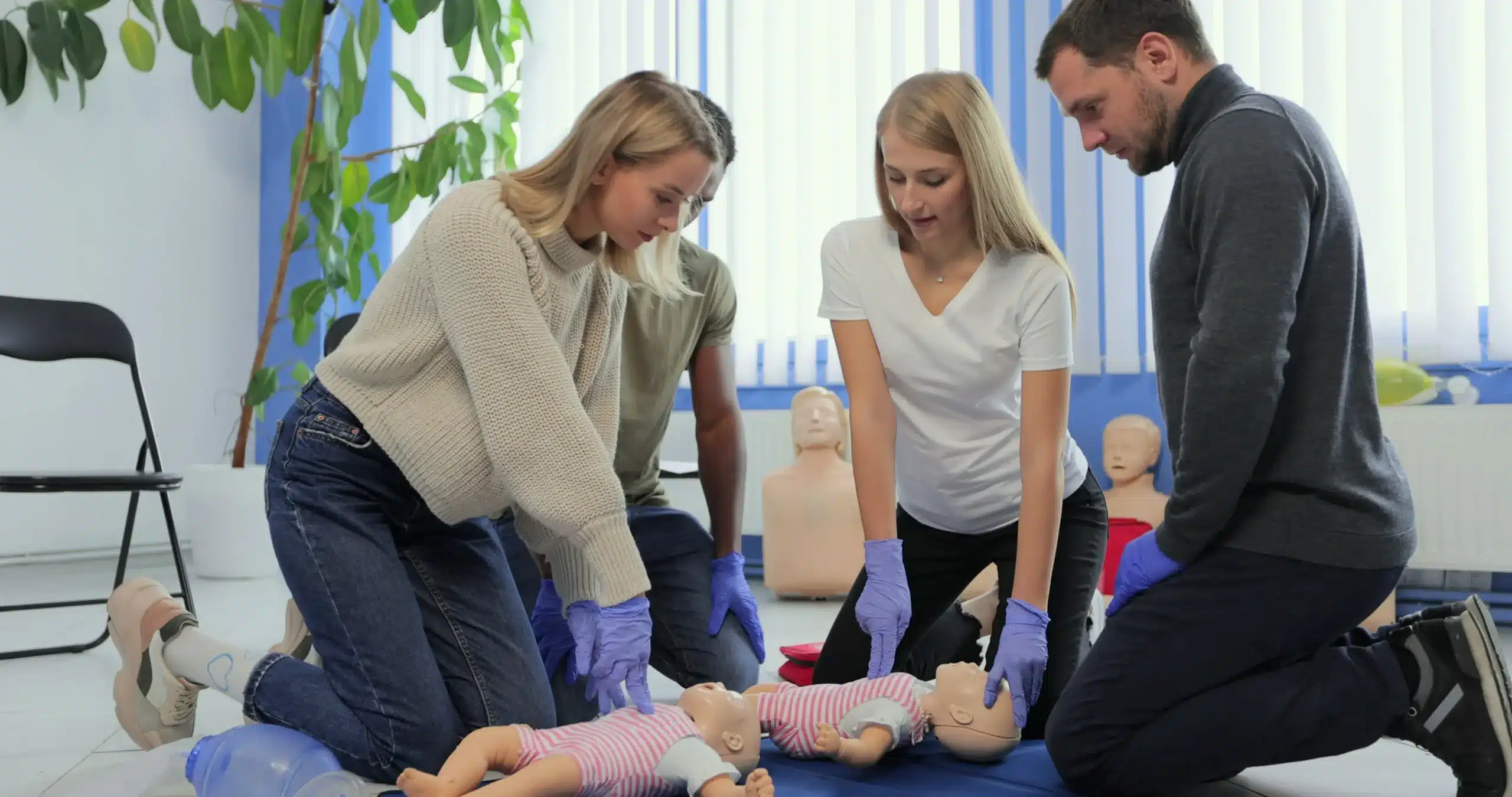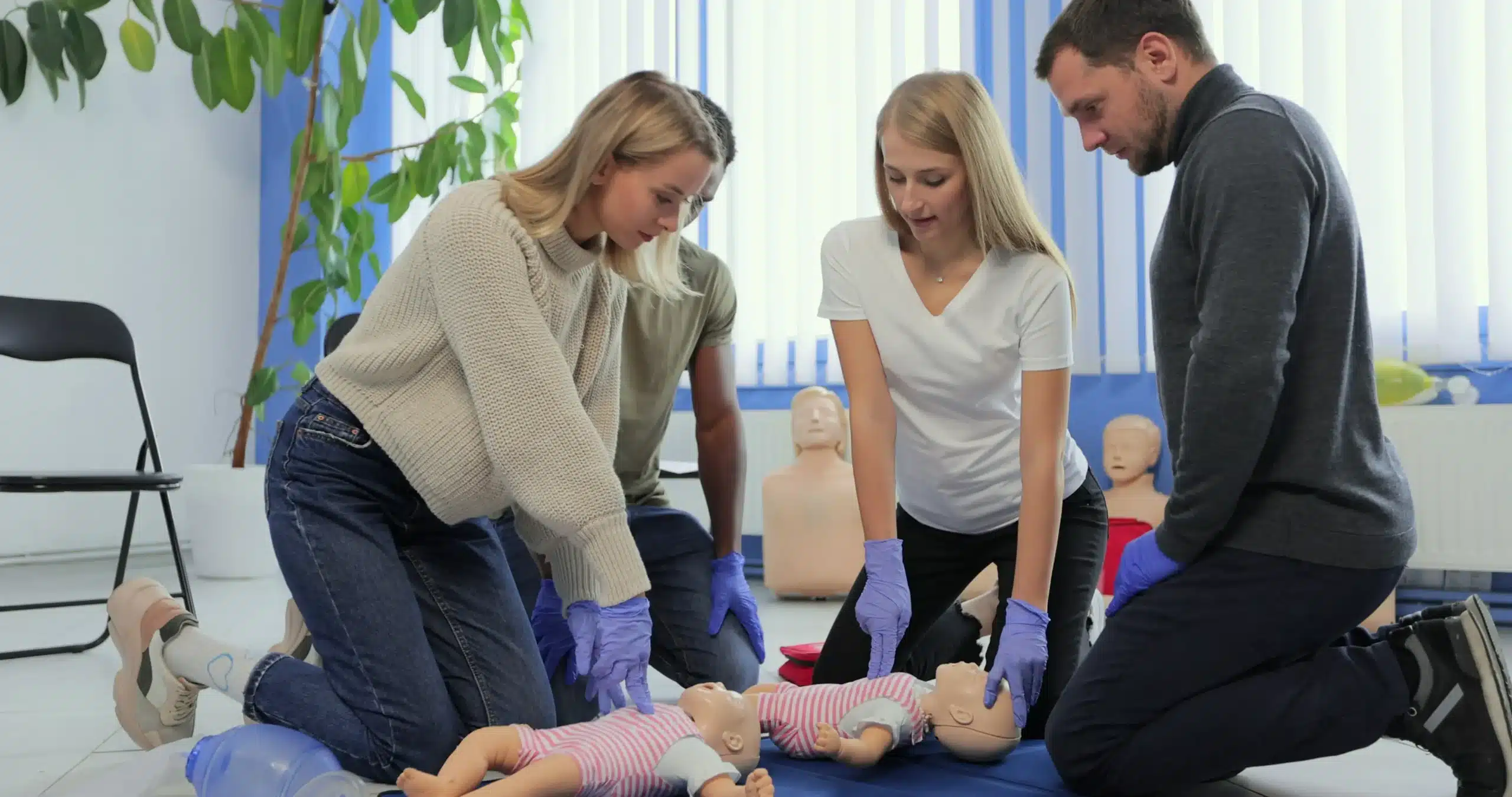Navigating the world of life support certifications can feel overwhelming, especially with so many acronyms like BLS, ACLS, and PALS. If you’re in Oakland and searching for the right training, you’re in the right place. This guide simplifies everything you need to know about BLS ACLS PALS courses Oakland, from understanding the core differences between each certification to finding the best training providers in your area. We’ll cover who benefits from each course, the various learning formats available, and what to expect in terms of costs and certification renewal. We’ll also debunk common misconceptions and provide helpful resources to support your training journey. Whether you’re a healthcare professional, a student, or simply someone who wants to be prepared for emergencies, this guide will equip you with the knowledge and resources to choose the right course for your needs.
Key Takeaways
- Understand the different levels of life support training: BLS provides foundational skills, ACLS focuses on advanced cardiovascular care, and PALS addresses the specific needs of infants and children. Choosing the right certification depends on your role and responsibilities.
- Explore training options in Oakland: Safety Training Seminars offers a range of courses with flexible scheduling and group discounts. Consider factors like accreditation, instructor experience, and class size when selecting a provider.
- Prepare for success: Utilize pre-course resources, practice hands-on skills, and understand the certification process. Staying current with your certification ensures you’re always ready to respond effectively in emergencies.
What are BLS, ACLS, and PALS?
These three certifications represent different levels of life support training, each designed to equip individuals with the skills to handle specific medical emergencies. Let’s break down each one:
What is BLS?
Basic Life Support (BLS) provides the foundational knowledge and skills to respond to life-threatening emergencies. BLS certification training covers essential techniques like CPR, using an automated external defibrillator (AED), and relieving choking. It emphasizes early recognition and intervention to improve patient outcomes. For more information on BLS Certification, visit our BLS page.
What is ACLS?
Advanced Cardiovascular Life Support (ACLS) builds upon the fundamentals of BLS. ACLS training focuses on the advanced management of cardiovascular emergencies, including heart attacks, strokes, and other life-threatening conditions. It equips healthcare professionals with the skills to assess, stabilize, and treat patients in these critical situations. Learn more about our ACLS course.
What is PALS?
Pediatric Advanced Life Support (PALS) is specifically tailored to the unique needs of infants and children. PALS certification covers the recognition and management of respiratory and circulatory emergencies in young patients. It emphasizes rapid assessment, effective interventions, and teamwork to provide the best possible care. Our PALS page offers more details.
Who needs these courses?
While the specific requirements vary depending on your profession and workplace, these courses offer valuable skills for a wide range of individuals. Everyone can benefit from learning BLS, empowering them to respond effectively in emergencies. ACLS certification is crucial for healthcare providers, particularly those working in emergency medicine, critical care, and other high-risk settings. PALS is essential for anyone regularly caring for children, including pediatricians, nurses, paramedics, and other healthcare professionals. Consider your role and responsibilities to determine which certification best suits your needs. If you’re training a team, explore our group discount options.
Where to Find BLS, ACLS, and PALS Courses in Oakland
Finding the right training center for your BLS, ACLS, or PALS certification is an important step. Oakland offers several options with varying schedules, formats, and prices. Here’s a breakdown of where you can find these courses:
Safety Training Seminars
Safety Training Seminars offers AHA-accredited courses in CPR, BLS, ACLS, PALS, and First Aid right here in Oakland. They provide options for both individuals and groups, with discounts for group registrations. This makes them a convenient and affordable choice for local healthcare providers, businesses, and community members. For those needing BLS certification renewal, they also offer the streamlined RQI program. Be sure to check their website for their low price guarantee.
American Heart Association Training Centers
The American Heart Association (AHA) website is a great resource to locate certified training centers in your area. Use their online search tool to find facilities offering BLS, ACLS, and PALS courses nearby. These courses adhere to the latest AHA guidelines and are taught by certified instructors.
Local Hospitals and Medical Centers
Many hospitals and medical centers in Oakland, such as Highland Hospital and Kaiser Permanente Oakland Medical Center, offer BLS, ACLS, and PALS courses. Often part of their staff training, these courses may also be open to the public. Contact the hospitals directly to inquire about availability and registration.
Community Colleges and Universities
Community colleges and universities frequently offer healthcare-related courses, including BLS, ACLS, and PALS certification. Check with institutions like Laney College and Merritt College in Oakland to see if they offer these courses through their continuing education or health sciences programs. These can be excellent options for students and healthcare professionals seeking accessible training.
Course Formats and Learning Experiences
Finding the right course format is key to successful learning. Whether you thrive in a traditional classroom or prefer the flexibility of online study, there’s a BLS, ACLS, or PALS course in Oakland to suit your needs. Let’s explore the different learning experiences available:
In-Person Training
In-person training remains a popular choice, especially for hands-on skills like CPR. Safety Training Seminars offers daily classes in Oakland for several certifications, including BLS, ACLS, PALS, and First Aid. These sessions provide students with immediate feedback from instructors and the chance to practice skills in a controlled environment. This direct interaction can be invaluable for building confidence and mastering essential techniques. You can find more information on the BLS course and the ACLS course offered by Safety Training Seminars.
Online Options
Juggling work, family, and other commitments can make finding time for in-person training tough. Online courses offer a flexible solution, allowing you to learn at your own pace and on your own schedule. Online PALS certification is one example of how online learning makes essential training more accessible. You can access course materials anytime, anywhere, fitting training seamlessly into your life.
Blended Learning
For those who appreciate the benefits of both in-person and online learning, blended learning offers a happy medium. Programs like the Resuscitation Quality Improvement (RQI) program combine online learning with hands-on skills testing. This approach allows you to study the theoretical components online at your convenience and then demonstrate your practical skills in person. Safety Training Seminars offers this fast RQI program for BLS, ACLS, and PALS certifications.
Simulation and Feedback
Simulation training takes learning a step further by immersing you in realistic emergency scenarios. PALS megacodes, for example, allow you to apply your skills in a team-based environment, mirroring real-world situations. These simulations provide valuable opportunities to receive personalized feedback from experienced instructors. They can observe your techniques, correct errors, and offer suggestions for improvement, ensuring you’re well-prepared for actual emergencies. This feedback is crucial for refining your skills and solidifying your understanding of advanced life support protocols. AHA certified training ensures instructors are qualified to provide this support.
Costs and Value
Understanding CPR course pricing can be tricky, so let’s break down the costs associated with BLS, ACLS, and PALS certification in Oakland. Knowing the typical price ranges and available discounts will help you budget effectively.
Course Pricing
When comparing courses, remember that price isn’t everything. Consider the value you’re getting. A lower price doesn’t always mean a better learning experience. Factors like instructor experience, course materials, and the overall learning environment contribute to the course’s true value. For example, the American Red Cross offers BLS classes, sometimes as short as 4.5 hours, for around $84.95. This price reflects their reputation and the standardized training they provide. Safety Training Seminars also offers competitive pricing on its BLS certification courses, along with a low-price guarantee, ensuring you receive excellent value.
Group Rates and On-Site Training
If you’re coordinating training for a group, look for providers offering group discounts and on-site training. This can significantly reduce the per-person cost and simplify logistics. Safety Training Seminars offers discounts for group classes, making it a cost-effective choice for businesses, schools, or community organizations in Oakland. On-site training eliminates travel time for your team, allowing them to focus on learning these essential, life-saving skills. This can be especially helpful for busy healthcare professionals or companies with tight schedules.
Bundles and Discounts
Bundling courses is another smart way to save. If you need both ACLS and PALS certifications, see if a provider offers a combined course package. This is often cheaper than taking the courses separately. The American HealthCare Academy, for instance, offers bundled ACLS and PALS certifications, providing comprehensive training at a discounted price. Similarly, bundling BLS with First Aid/CPR training can be a great way to expand your skillset while saving money. Check with various providers, including the Red Cross, to explore bundled options they offer in Oakland. Safety Training Seminars also provides ACLS and PALS courses—inquire about potential discounts for combining these certifications.
Certification and Renewal
Earning your BLS, ACLS, or PALS certification is a significant achievement. Understanding the certification process, validity periods, and renewal requirements will help you stay current and confident in your life-saving skills.
Certification Exams
Certification exams for BLS, ACLS, and PALS courses typically involve a written component and a skills test. The written exam assesses your knowledge of the protocols and procedures, while the skills test evaluates your ability to perform those procedures correctly. At Safety Training Seminars, our BLS course prepares you for both. Classes can be completed in as little as 4.5 hours, depending on the format, offering flexibility for your schedule.
Certification Validity
After passing your exam, you’ll receive an official American Heart Association (AHA) certification card, valid for two years. This timeframe reflects the ongoing evolution of best practices in emergency cardiovascular care. All courses at Safety Training Seminars lead to AHA certification. Maintaining a current certification is crucial for providing effective care.
Renewal Requirements
To maintain your BLS, ACLS, or PALS certification, complete a renewal course before your current certification expires. Renewal courses cover updates to guidelines and reinforce essential skills. Resources like online refresher materials (games, quizzes, videos) can help you stay sharp between renewals. Planning ahead ensures continuous coverage and demonstrates your commitment to high-quality care.
Choosing a Course Provider in Oakland
Finding the right course provider is key to a positive and effective learning experience. Here’s what to consider when choosing where to take your BLS, ACLS, or PALS course in Oakland:
Accreditation and Recognition
First and foremost, confirm your chosen provider offers courses accredited by a recognized organization like the American Heart Association (AHA). AHA accreditation ensures your training aligns with nationally accepted standards, which is essential for healthcare professionals and anyone requiring certification for their job. Safety Training Seminars, for example, offers AHA-accredited BLS courses, guaranteeing high-quality instruction.
Instructor Qualifications
Experienced and knowledgeable instructors make a significant difference in how well you grasp the material. Instructors who actively use and teach these life-saving techniques bring real-world experience to the classroom. Safety Training Seminars combines online learning through the RQI program with in-person skills sessions, ensuring you receive comprehensive instruction and support.
Class Size
A smaller class size can dramatically improve your learning experience. It allows for more personalized attention from the instructor, giving you ample opportunities to ask questions and practice your skills. When researching providers, consider those who maintain smaller class sizes, like Safety Training Seminars, to ensure you receive the individual guidance you need.
Scheduling Options
Juggling work, family, and other commitments can make finding time for training challenging. Look for a provider that offers flexible scheduling options. Safety Training Seminars provides daily CPR classes with extended hours, making it easier to fit a course into your busy schedule. Their convenient hours, running from 8 am to 10 pm, accommodate various work shifts and personal commitments.
Prepare for Your Course
Getting ready for your BLS, ACLS, or PALS course can make a real difference in your performance. A little prep work goes a long way!
Pre-Course Resources
Want a head start? Check out the pre-course videos offered by Safety Training Seminars. These resources can significantly improve your understanding of the material before you even set foot in the classroom. Students who use these videos have much higher passing rates.
Study Tips
Once you’ve reviewed the online videos, focus on the practical skills. Practice allowing for full chest recoil during compressions and count out loud as you perform them. This helps solidify the rhythm and technique, which are key elements instructors evaluate during the skills test. Practicing these skills will help you feel confident and prepared for your training.
What to Expect on Training Day
You’ll receive your certification card immediately after you finish the course. Safety Training Seminars offers courses for both individuals and groups, with discounts available for group registrations. CPR training involves physical activity, so consider any physical limitations you may have before signing up.
Benefits of Life Support Training
Life support training, encompassing certifications like BLS, ACLS, and PALS, offers a range of benefits extending beyond professional applications. These skills empower individuals to respond effectively in emergencies, provide better patient care, and gain the confidence to make a real difference.
Improve Emergency Response
BLS training equips you with practical skills to manage emergencies. It’s a common misconception that only healthcare providers need this training. Anyone can benefit from learning how to use an AED, perform basic airway management, and assist someone who is choking. These skills can be invaluable in various situations, from a medical crisis at home to an incident in a public space. Knowing how to respond quickly and effectively can significantly improve outcomes. For more information on common BLS misconceptions, check out this helpful article.
Enhance Patient Care
PALS certification focuses on pediatric emergencies, providing specialized knowledge and skills to care for infants and children. While basic CPR is valuable, PALS training provides more in-depth information on the specific physiological differences and treatment protocols for younger patients. This specialized training can be crucial for healthcare professionals, educators, and caregivers who regularly interact with children. It allows for quicker recognition of life-threatening situations and more effective interventions. Learn more about the importance of PALS certification and why it goes beyond basic CPR.
Build Confidence
Undergoing life support training not only provides essential skills but also instills confidence in your ability to handle emergencies. The structured learning environment, often led by experienced medical professionals, offers opportunities for personalized feedback. Instructors can observe your techniques, correct any errors, and provide valuable suggestions for improvement. This personalized attention helps build proficiency and reinforces best practices, giving you the confidence to act decisively in critical situations. Learn more about the value of certified training programs and how they contribute to building competence and confidence. Knowing you have the skills and training to respond effectively can make all the difference when faced with a real-life emergency.
Common Misconceptions
It’s easy to get confused about the different types of life support training. Let’s clear up some common misconceptions about BLS, PALS, and ACLS certification.
BLS for Everyone
One common misconception is that Basic Life Support (BLS) training is only for healthcare professionals. This simply isn’t true. Anyone can benefit from BLS training, from teachers and coaches to office workers and stay-at-home parents. BLS certification covers essential skills like CPR, using an AED, and helping someone who is choking. These skills can be lifesaving in any environment.
PALS Beyond Hospitals
Another misconception is that Pediatric Advanced Life Support (PALS) certification is only necessary for those working in hospitals or emergency rooms. While PALS is crucial in these settings, it’s also valuable for anyone regularly interacting with children, including childcare providers, school nurses, and camp counselors. PALS certification teaches you how to recognize and respond to life-threatening emergencies in infants and children.
Online Certification Validity
There’s some confusion around online certification, with some believing it’s not as valid as in-person training. While it’s true that some certifications require in-person skills testing, many reputable organizations, including the American Heart Association, offer valid online certification options. These courses often combine online learning with hands-on practice and in-person skills sessions. Be sure to choose a program that aligns with your needs and meets the requirements of your workplace or licensing board. It’s also important to note that PALS certification is different from BLS and requires renewal.
ACLS for Various Specialists
Finally, some believe Advanced Cardiovascular Life Support (ACLS) training is only for certain medical specialists. In reality, ACLS certification is beneficial for a wide range of healthcare providers who might encounter cardiac emergencies. This includes physicians, nurses, paramedics, and respiratory therapists. ACLS teaches advanced techniques for managing cardiovascular emergencies and emphasizes teamwork and effective communication.
Support and Resources
We want you to feel confident and prepared for your BLS, ACLS, or PALS certification course. That’s why we offer several support resources to help you succeed.
Pre-Course Videos
We highly recommend reviewing our pre-course videos. Students who watch these videos have a 50% higher passing rate. They cover essential foundational knowledge, giving you a head start and improving your understanding of the course material. This extra preparation can make a real difference in your performance and increase your comfort level during training. You can find more information about our CPR classes in Oakland.
RQI Online Courses
The Resuscitation Quality Improvement (RQI) program provides a faster, more convenient path to earning your BLS, ACLS, and PALS certifications. The program combines online learning with hands-on skills testing. You can complete the online portion at your own pace, fitting it into your schedule. Learn more about our RQI courses and other offerings.
Skills Testing with Mannequins
After completing the online portion of the RQI program, you’ll practice your skills with a voice-activated mannequin in a realistic environment. While instructors aren’t physically present during the skills testing, phone support is readily available to answer any questions or address any concerns. For more details about our training process, visit our CPR classes page for Oakland.
Related Articles
- BLS CPR Classes in Oakland, CA – Oakland CPR Classes
- AHA ACLS Classes in Oakland, CA – Oakland CPR Classes
- PALS Classes in Oakland, CA – Oakland CPR Classes
- BLS, ACLS, PALS, CPR & First-aid Classes in Oakland, CA
- American Heart Association Course – Oakland CPR Classes
Frequently Asked Questions
Do I need to be a healthcare professional to take a BLS, ACLS, or PALS course? Not at all! While these certifications are essential for healthcare providers, anyone can benefit from learning these life-saving skills. BLS, in particular, is valuable for everyone, as it equips you to respond to emergencies like choking or cardiac arrest. PALS is helpful for those working with children, such as teachers or childcare providers. Consider your own circumstances and choose the course that best fits your needs.
How much do these courses typically cost? Course fees vary depending on the provider, location, and type of certification. It’s always a good idea to compare prices and consider the value you’re receiving. Look for providers offering group discounts or package deals if you plan to take multiple courses. Don’t hesitate to contact different training centers to discuss pricing and explore available options.
What’s the difference between online and in-person training? Both online and in-person courses offer valuable learning experiences. Online courses provide flexibility, allowing you to learn at your own pace and on your own schedule. In-person classes offer hands-on practice and direct interaction with instructors. Consider your learning style and preferences when choosing a format. Some providers also offer blended learning, combining online modules with in-person skills sessions.
How long are these certifications valid, and how do I renew them? BLS, ACLS, and PALS certifications are typically valid for two years. To renew your certification, you’ll need to complete a refresher course before it expires. Check with your certifying organization or training provider for specific renewal requirements and available courses. Staying current with your certification ensures you’re up-to-date on the latest guidelines and best practices.
How can I find a reputable course provider in my area? Start by checking the American Heart Association website for a list of certified training centers near you. You can also contact local hospitals, community colleges, or universities to inquire about available courses. When choosing a provider, consider factors like accreditation, instructor qualifications, class size, and scheduling options. Reading reviews and testimonials can also give you valuable insights into other students’ experiences.
This article was written for free by MEGA SEO.


